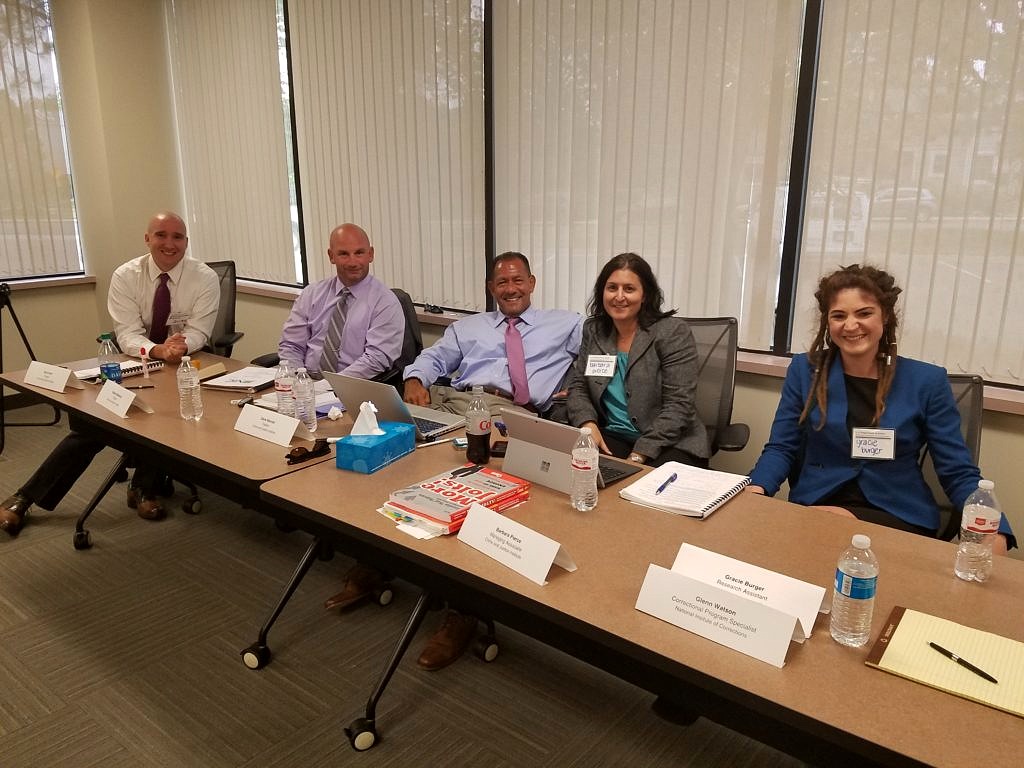
Following over four years of successful trainings to prison professionals around the country, the National Institute of Corrections (NIC) entered into a cooperative agreement with CJI to expand its Managing Prison Restrictive Housing Populations program and to create a Managing Jail Restrictive Housing Populations curriculum. This effort came in response to the U.S. Department of Justice (DOJ) “Report and Recommendations Concerning the Use of Restrictive Housing” in 2016 that contained a set of guiding principles recommended to promote staff and inmate safety and security in prison and jail restrictive housing programs.
In the summer of 2017, NIC/CJI developed the first-of-its-kind jail program, incorporating the DOJ guiding principles. The curriculum was piloted in Aurora, Colorado on September 11-14, 2017. Jail and mental health leaders from the following agencies were selected to participate in the pilot:
- Las Vegas, Nevada
- Prince George’s County, Maryland
- Lafayette Parish, Louisiana
- Los Angeles County, California
- Minnehaha County, South Dakota
- New York City, New York
- Santa Cruz County, California
- Uintah County, Utah
- Washtenaw County, Michigan
The training, facilitated by experienced correctional administrators and mental health professionals, enabled the participants to:
- Examine restrictive housing practices within their own agencies, and compare those practices against DOJ Guiding Principles;
- Participate in interactive skill-building activities and action planning to determine strategies for their agencies to safely reduce the use of restrictive housing; and
- Share challenges, and promising practices and recommendations for the implementation of the Guiding Principles with peers from across the United States.
The next Managing Jail Restrictive Housing Populations will take place at NIC’s Training Academy November 13-16.
Participant Action Steps Following Jail Training:
- We will be implementing a pilot program for youthful offenders at our biggest jail, with the intent of keeping youthful offenders out of disciplinary restrictive housing.
- We will be implementing a multi-tier stepdown process for restrictive housing.
- We are planning to review and assess our definition, description, and use of Restrictive Housing practices in all areas of our facility.
- We plan to implement a mental health unit to reduce the number of SMI inmates in restricted housing.
- Our facility is planning to eliminate restrictive housing for the 18-24 age group. We also plan to bring up the idea of structured living programs with my mental health colleagues at our facility.